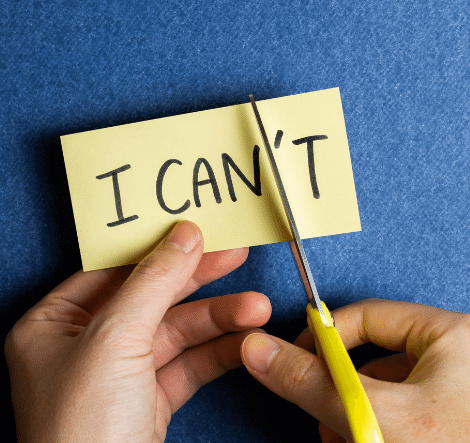Self Esteem
Self-esteem is the opinion we have about ourselves. We can have high or low self-esteem depending on the opinion we hold about ourselves.
Many factors can influence self-esteem, including our relationships with others, our successes, and failures, and even the way that we physically look. While self-esteem may seem like a simple concept to understand, it is quite complex, as there are many different ways that self-esteem can be affected and developed. This can cause problems if it is too far on either end of the spectrum.
There are many ways that you can help to improve your self-esteem. Some of these include practicing positive thinking, surrounding yourself with supportive people, and working on building confidence in your abilities. By doing these things, you can help to create a more balanced view of yourself and your worth, which will ultimately lead to better mental health and well-being.

What is Self-Esteem
Self-esteem is the opinion we have about ourselves. It is how we see and value ourselves. It can be high or low depending on how we think and feel about ourselves and what we have internalised.
It is important to have a healthy balance of self-esteem, as too much or too little can lead to problems in our lives.
The different types of self-esteem
There are different types of self-esteem. Some people may have high self-esteem, while others may have low self-esteem. The type of self-esteem someone has can be influenced by many different factors, including their relationships with others, their successes, and failures, and even the way they physically look.
High Self Esteem
People with high self-esteem have a positive opinion of themselves. They see themselves as competent and worthy individuals. They are confident in their abilities and feel good about themselves. People with high self-esteem usually have successful relationships and can achieve their goals.
Low Self Esteem
People with low self-esteem have a negative opinion of themselves. They see themselves as unworthy and incompetent. They lack confidence in their abilities and feel bad about themselves. People with low self-esteem usually have unsuccessful relationships and are unable to achieve their goals.
Perhaps you found it difficult to live up to other people’s expectations of you, or to your own expectations. Stress and difficult life events, such as serious illness or bereavement, can have a negative effect on self-esteem.
Personality can also play a part. Some people are just more prone to negative thinking, while others set impossibly high standards for themselves.
Inflated Self Esteem
Some people may have an inflated sense of self-esteem, which is characterized by arrogance and cockiness. While these individuals may appear confident on the surface, they can be overly critical and judgemental of themselves and others. They often struggle with maintaining healthy relationships due to their inflated sense of superiority.
How is self-esteem different from self-confidence?
Self-esteem is the opinion we have of ourselves, while self-confidence is the belief we have in our abilities. Someone with high self-esteem may or may not be confident in their abilities, while someone with low self-esteem is usually not confident in their abilities.
Why is self-esteem important?
Self-esteem is important because it can affect many different areas of our lives. It can influence our relationships, our work, and even our physical health. When we have healthy self-esteem, we are more likely to be happy and successful in all areas of our lives. However, when we have low self-esteem, we may find it difficult to achieve our goals and lead happy, fulfilling lives.
What are the benefits of having healthy self-esteem?
There are many benefits to having healthy self-esteem. People with healthy self-esteem tend to have more success in their relationships and careers, as well as better mental health. They also tend to be more resilient and able to handle the challenges of life with greater ease.
By working on improving our self-esteem, we can reap many benefits for our overall well-being.
How does self-esteem develop?
Many different factors can affect our self-esteem. These can include our relationships with others, our successes, and failures, and even the way we physically look. Our early experiences and the messages we receive from those around us can also play a role in how our self-esteem develops.
What are the consequences of low self-esteem?
Having low self-esteem can lead to problems in our lives.
For example, we may be less likely to take risks or try new things. We may also have difficulty dealing with criticism or setbacks. Low self-esteem can also lead to depression, anxiety, and other mental health problems.
How can I improve my self-esteem?
Self-esteem is an important part of our lives because it affects our mental and emotional health, as well as our relationships with others. If you are struggling with low self-esteem, there are many things that you can do to improve it.
Here are a few suggestions:
Challenge your negative self-talk:
When you catch yourself thinking negative thoughts about yourself, stop and challenge them. Are they true? Is there evidence to support them?
Focus on your positive qualities:
Make a list of all the things you like about yourself, both big and small. Write down your strengths, accomplishments, and positive qualities, and remind yourself of them often.
Engage in positive self-care:
Taking care of your physical health, spending time with friends and loved ones, practising relaxation techniques, and participating in enjoyable activities are all great ways to improve your self-esteem.
Have supportive people around you
It is also important to surround yourself with supportive people who can offer encouragement and support as you work on improving your self-esteem. With time and effort, you can overcome low self-esteem and learn to feel more confident about yourself and your abilities.
By working on improving your self-esteem, you can set yourself up for success in all areas of your life. When you have healthy self-esteem, you are more likely to be happy and fulfilled. So, start making positive changes today, and see how it can benefit your life in the long run.
Getting help for low self-esteem
If you are struggling with low self-esteem, there are many sources of help available. You can start by talking to your doctor or mental health professional. There are also many books and websites that offer advice on how to improve self-esteem.
A therapist can help you understand the root of the low self-esteem you are experiencing and work with you to gain confidence and achieve your goals.
Seek professional help to get the support that you need during this difficult time. A therapist can work with you to understand the root of your low self-esteem and will help you develop the tools that you need to cope with it.
If you are struggling with low self esteem, it is important to seek professional help. There are many resources available to help you get the treatment you need.






